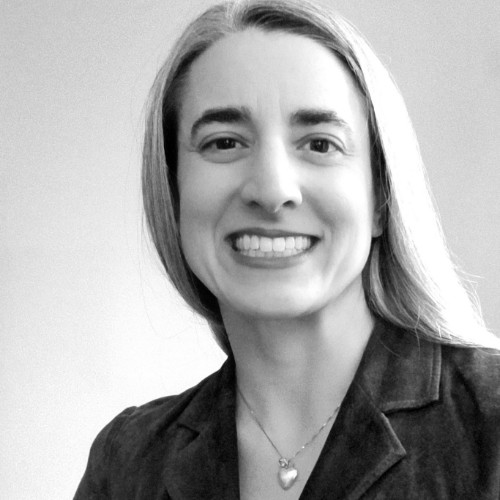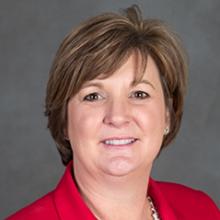
Persist: Near-peer coaching’s impact in closing the college completion gap
Learn how College Possible Catalyze near-peer coaches help students from low-income backgrounds persist through degree completion
In this timely webinar, we’ll share how near-peer coaching materially improves college persistence and retention among first-generation students and students from low-income backgrounds. Hear from university leaders about how they’ve leveraged College Possible Catalyze coaches to boost semester-to-semester and year-to-year retention among Pell-recipient students.
WE’LL EXPLORE:
- How the systemic challenges that affect college retention among students from low-income backgrounds have grown due to the coronavirus pandemic, including new resource constraints on student success staff
- Insights into the growing market demand, and investments, to ensure the college success of this valuable segment of your student population
- How near-peer coaches can effectively augment existing student services to help address the most common barriers to college completion
- The unique role of near-peer coaches in supporting first-to-second year retention
- Practical insight from university leaders about the key factors influencing their near-peer coach investment
PRESENTERS:

Moderator: Catherine Marciano, VP Partnerships, College Possible
For more than twenty years Catherine Marciano has devoted her professional career to equity through education as a teacher, evidence-based program innovator, data collector and analyst, and dynamic senior leader of New York City based educational non-profits for social good. As an ally and competent strategist, Catherine has a proven track record of developing best-in-class programs that support individuals from traditionally underserved groups, in particular Black, Latino, low-income and first-generation students, in achieving post-secondary success. Most recently, as Managing Director of College Services for KIPP NYC Through College (KTC NYC), Catherine led design and implementation of internal strategies and external partnerships that boosted college completion rates for KIPP NYC alumni from 38% to a historically high 54%—all while the program scaled from serving 400 students to more than 2,200. A native of Cleveland, OH, Catherine has lived in New York City for 22 years. Catherine holds a BS in Mathematics from Saint Mary’s College, Notre Dame, IN.

Panelist: Carol Tonge Mack – Assistant Dean, Academic Services: College of Arts and Sciences at the University of Cincinnati
Carol Tonge Mack is a bold leader, student advocate, and visionary in her non-traditional methods to help retain and graduate students. She is the Assistant Dean of Retention in the College of Arts and Science of Arts and Sciences (A&S). Carol’s primary focus is to provide creative and innovative strategies while collaborating with campus stakeholders to retain and graduate students. Most recently, she also served as the Assistant Dean for Recruitment and was responsible for 9% increase with incoming first year students which was the largest enrollment in the college’s history. Additionally in 2014, her team increased the yield by 4% for transfer students. She is the architect of the first Cultural Competence Workshop Series for the academic advising staff. Three years after the series was created, the advising team received the Marian Spencer Diversity Ambassador Award. In the fall of 2015, Carol was one of the co-founders of UC Black Women on the Move; an Employee Resource Group designed to create systematic and holistic changes university-wide to support and empower Black female staff members. As she continued to build her leadership skills, Carol was selected for WE Succeed and the C-Change Young Professionals Leadership Programs with the Cincinnati USA Regional Chamber. She was also a participant in the nationally known Kaleidoscope Leadership Institute for Women of Color. Carol received her Bachelor’s Degree in History from Middlebury College in Vermont, her Masters of Arts in Teaching, as well as a Masters of Education in Counseling from the University of New Hampshire.

Panelist: Dr. Loretta Griffy, Associate Vice President for Academic Strategic Initiatives and Foundation Engagement, Austin Peay State University
Dr. Loretta Ussery Griffy has worked on a college campus for over 25 years. She currently serves as the Associate Provost for Student Success at Austin Peay State University (APSU) and Professor of Mathematics and Statistics. Her work on campus focuses on promoting student success and a culture of self-improvement on campus through development, implementation and assessment of initiatives focused on the teaching, learning, and advising environment in a collegiate setting. She is responsible for faculty development and engagement in student orientation events, academic advising, and the university success initiatives at her institution. As APSU began to focus on students’ first year experiences, success structures were developed to help students identify broad areas of academic focus (meta-major), structured 4-year and 2-year plans were developed and institutionalized as part of the curriculum development and annual update process, technology tools identified to ease the burden of degree planning and course registration, data utilized to inform intervention need, attention paid to the belonging and cultural needs of students, and early engagement with faculty and like-minded peers encouraged. Additionally, over the past few years, she has served as the principal investigator Department of Education Title III grant, as co-principal investigator for a National Science Foundation grant, and executive sponsor PI for a Breakthrough Models Incubator NextGen Learning grant, and Integrated Planning and Advising Services grant.

